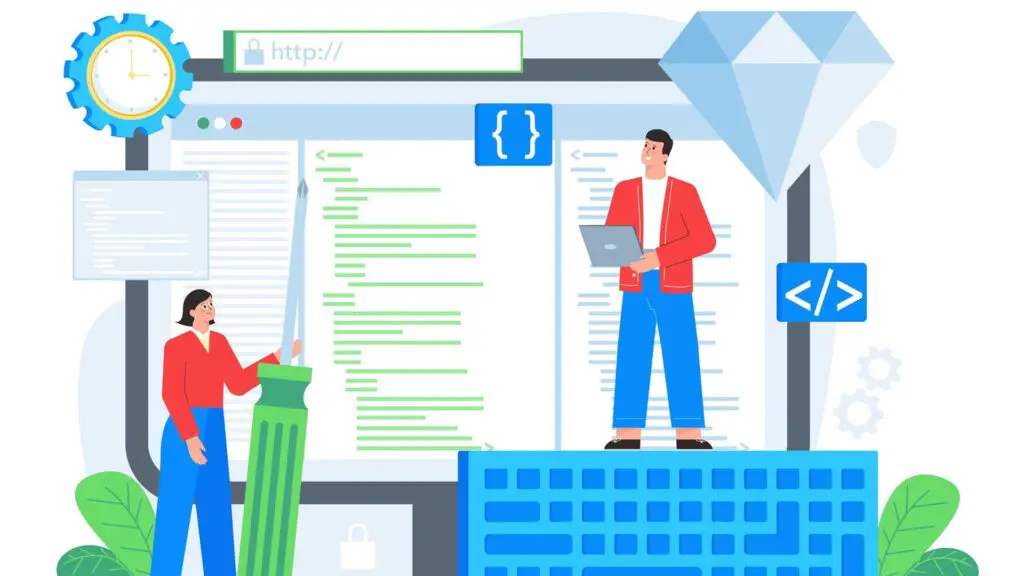“I’m afraid people can see me through my webcam even though it’s off.” – Unknown. As we humans are rapidly stomping through the digital age. Everything that we do is slowly being replaced by machines that are run through software. I’m sure we all have some peers in our lives who are ‘technologically challenged’ and they most certainly seem to be quite far from the shores of these terms as well as concepts. Nonetheless, it is our duty to protect them as well. In today’s article, we will be empowering you simply by using two magic words ‘Residential Proxy’.
What is residential proxy and what does it do? If you haven’t heard the term Residential Proxy before, you’re not alone. Despite its growing popularity, the term Residential Proxy is relatively new, but the concept behind it has been around since the dawn of the internet. In short, Residential Proxies are anonymizing services that protect your privacy by hiding your actual IP address when you surf the web or use applications such as Facebook and Twitter.
What is a Residential Proxy?
A residential proxy server is an intermediate server between you and another server, hiding your
original identity in order to protect your privacy. Using a residential proxy can be ideal if you have files that you need to download or images that you want to see online, but don’t want anyone seeing them
as originating from your IP address. In addition, some businesses prefer connecting to their enterprise network via residential proxies because they mask any sensitive information within their connection logs. In today’s world where everything is online, hackers are always on the lookout for new targets. By using a residential proxy service like Vircom Personal Proxies, you can stay safe while browsing online. Follow these steps and visit secure sites without worrying about being hacked
What are all the uses of Residential Proxy?
In addition to security, residential proxy servers are used for other tasks such as caching web pages and collecting information about users. (Just be aware that some sites use cookies to track what you do.) Many proxy server providers claim that their services can also speed up your browsing experience, but unless you’re in an area where access to internet content is being restricted, many say that there isn’t much benefit to using them on a regular basis. In fact, some say that non-logging services could actually slow down internet speeds as it requires more processing power from your computer or device. Either way, if privacy is your primary concern when surfing online and accessing websites anonymously, experts agree that using residential proxy servers is an easy way to ensure safety and avoid being hacked.
The digital Godfather of your online businesses!
Proxy servers hide your IP address from potentially prying eyes. When you’re in public, anything you do online can be seen by anyone else within line of sight—if they know what to look for. A proxy server works as a screen and masks whatever you’re doing, making it difficult for snoopers to see what you’re up to. These are especially useful if someone is after your sensitive information like passwords or financial information—like those pesky hackers who broke into Equifax! With a residential proxy, you won’t have to worry about that happening again.
What solutions can a Residential Proxy provide?
A residential proxy is an excellent solution for anyone looking to protect their privacy online. You can use it to unblock websites, stay anonymous and secure, improve your browsing speed and access restricted content. Even though you’re living in one place, you may not always be there. As long as you have an internet connection, a residential proxy lets you pretend that you’re located somewhere else online. It’s great for catching up on your favourite shows or streaming movies when on vacation—no matter where your physical location is at that moment. The IP address you get from a residential proxy looks just like what any other residence would have access to locally and won’t set off red flags if anyone checks up on it; they will assume that all is fine.
What makes residential proxy servers so important?
There are three main things that make residential proxy servers so critical for online privacy and data security. First, residential proxies don’t offer any information about you or your browsing history to anyone on the internet. With an anonymizer service like Tor or VPN (Virtual Private Network), you have no anonymity—the company has your personal details and your IP address is available to anyone who cares to look. Second, residential proxies use strong encryption methods like SSL (Secure Sockets Layer) or TLS (Transport Layer Security) to protect all your web traffic from prying eyes. This makes it impossible for someone on public Wi-Fi to see what sites you’re visiting without serious effort and technology at their disposal.
To summarize
Like it or not but slowly and steadily we all have unconsciously developed two lives. One in the material plane (that does truly matter) and the other in the digital realm (which is equally important). So, don’t let your search history and data be exposed to identity thieves, hackers, marketers and advertisers. Using a residential proxy is an easy way to protect your privacy while browsing online.
